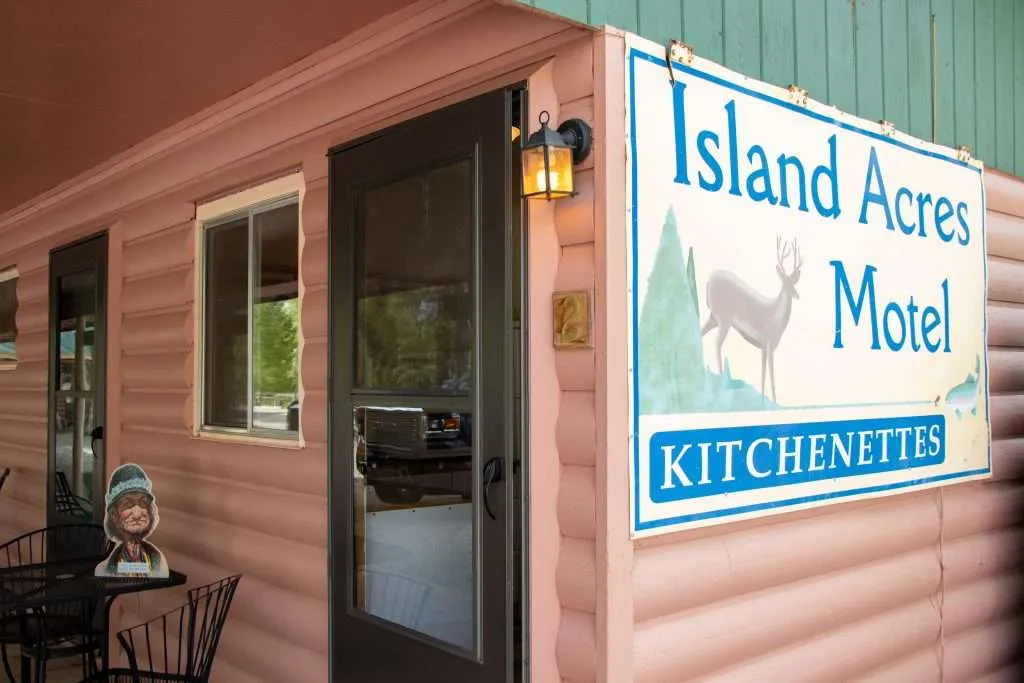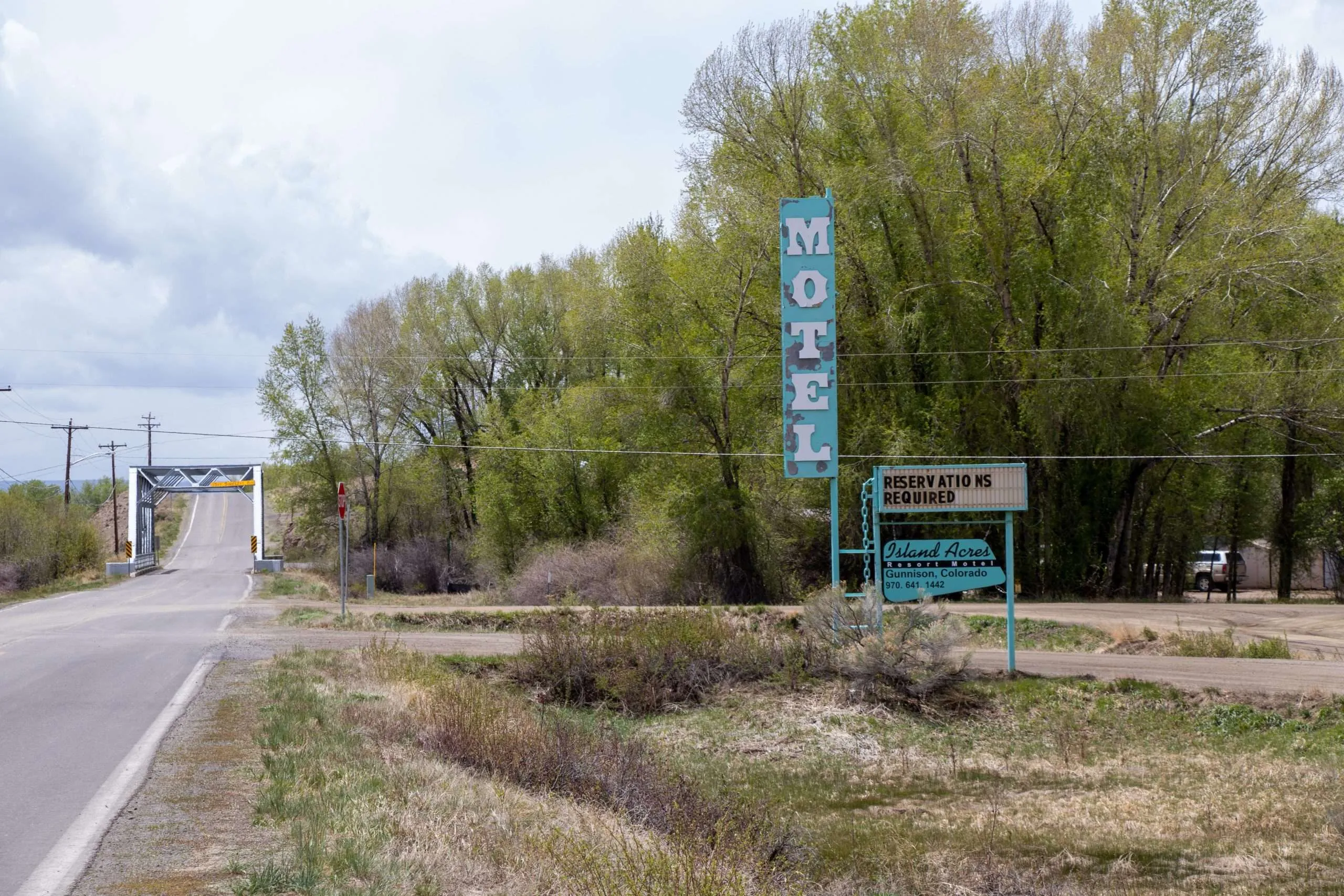Sociology of Hospitality
Island Acres Resort Motel is a historic motel along US 50, a major highway crossing the entire state of Colorado from East to West. The motel’s historic charm brings many repeat visitors who take notice of its uniqueness in an increasingly standardized world of hospitality. Standardization of industries is a topic of inquiry for organizational sociologists using theory to understand problems and offer solutions. In this article we discuss how sociological theory can help us understand what is going on at Island Acres Resort Motel and in the hospitality industry more broadly.
Institutional Isomorphism in the Hospitality Industry
Institutional isomorphism is a term in sociology used to explain the similarities or homogeneity between organizations within the same field or industry. We have all likely noticed the organizational processes of fast food chains. The entire system of McDonalds is not all that different from Burger King, or any other chain for that matter. All of these organizations have similar or homogenous practices when it comes to franchising a restaurant, preparing food, and providing customers with an expected experience.
Institutional isomorphism occurs in the hospitality industry as well. As an example let’s look at three popular motel chains in the United States: Holiday Inn Express, Hampton Inn and Suites, and Fairfield Inn. Each of these chains is owned by a larger parent company. The parent companies are Intercontinental, Hilton, and Marriott, respectively. Yet, as we see in the images below, each of these motels appear similar both inside and out.
| Outside Appearance | Guest Room Appearance | |
| Holiday Inn Express | ||
| Hampton Inn and Suites | ||
| Fairfield Inn |
The homogeneity is obvious from looking at the design and structure of each of these organizations. If we were to dig deeper, we would surely find even more striking similarities between the check in/out processes, guest services, amenities, and more. Even so, Island Acres and other motels like them still exist as deviations from the norm.
Island Acres Resort Motel and McDonaldization of Hospitality
It is evident that major corporations in the hospitality industry mimic one another in order to improve or maintain their profitability. Why does this work, though? The short answer is because customers know what they will receive.
George Ritzer introduced the concept of McDonaldization in 1993 to describe how society adopts the processes of a fast food restaurant. According to Ritzer, McDonaldization contains four different components:
- efficiency,
- calculability,
- predictability, and
- control.
In the hospitality industry we see examples of extreme efficiency. For example, housekeepers at major chains may have a time limit for how long they can spend cleaning each room after a checkout.
Calculability refers to the organization’s ability to quantify their own success. In hospitality, an example might include evaluating the success of the operation by how many guests are served, rather than the actual quality of the experience for visitors.
Predictability is the idea that people will come to expect the same experience when they visit a business. In hospitality that means guests will learn the process and procedures of staying at an inn or motel and expect the same standard experience each and every visit, regardless of the location.
Finally, Ritzer addressed control as an element of McDonaldization. Control refers to the idea that employees should be interchangeable without impacting the predictability of the experience for the customer.
While each of these components have their role in success for a plethora of businesses, they also take away from the unique experiences many of us crave while traveling. Despite McDonaldization in the hospitality industry, gems like Island Acres still exist.
Institutional Trust
Many people find themselves torn between a lack of institutional trust in large corporations and a desire to save money. As an example, people have become conscious of eating locally. Many would rather shop for produce at farmers markets than Walmart. But, of course, many of us still buy fruits and vegetables from Walmart or other major corporations where food is shipped long distances because of both convenience and cost.
The same can be applied to the hospitality industry. People would rather rent from small-scale, family-owned businesses, but often the impression is it costs more to stay at historically significant locations. While luxury hotels certainly charge guests more for that luxury experience, another more affordable trend has flooded the hospitality market that offers unique experiences to travelers on a variety of budgets: boutique motels.
Boutique Motels and Placemaking in the Hospitality Industry
Placemaking, a term often used in urban planning and by urban sociologists, refers to the process of inspiring a sense of place in public spaces. Sociologists often discuss placemaking as what happens when we attach meaning to a space, transforming it into a place. For example, the process of adding a community mural to a once neglected neighborhood park can transform that public space into a symbol of community pride. In short, when we experience a sense of place, we are experiencing uniqueness, authenticity, community, and belonging.
While chain motels like the Holiday Inn Express provide everything guests need as far as accommodations, they often lack a sense of place. The trend of boutique motels takes over where larger chains fall short by providing guests with a sense of place. In the case of Island Acres Resort Motel, that sense of place comes from its historical significance and family-owned charm.

Final Thoughts on Resisting Standardization in the Hospitality Industry
While a sense of place provides meaning and authenticity for visiting guests, boutique motels face the issue of competing with the McDonalds of the hospitality industry. Potential guests may go straight to Hotels.com to book accommodations, completely missing boutique motels that may not list their businesses on such booking sites. Families may automatically book with larger, well-known chains because they know exactly what they are getting for them and their children. Folks looking for a quick overnight stay may be looking for the most convenient reservation and check-in processes they can easily find from the Holiday Inn Express.
The sociological problem here is finding a balance between resisting institutional isomorphism and catering to guests who have become accustomed to it. For clinical sociologists, the task becomes preserving a sense of place for boutique motels like Island Acres Resort Motel while ensuring guests receive the convenient and predictable amenities and processes they have come to expect through standardization.
With all that said, while any business competing in the hospitality industry today may need to accommodate guests with some standardization, there is still room within that predictability for uniqueness, authenticity, and belonging. And, it is worth the risk of losing some of that predictability to experience boutique motels like Island Acres Resort where there is always vacancy for a sense of place.







